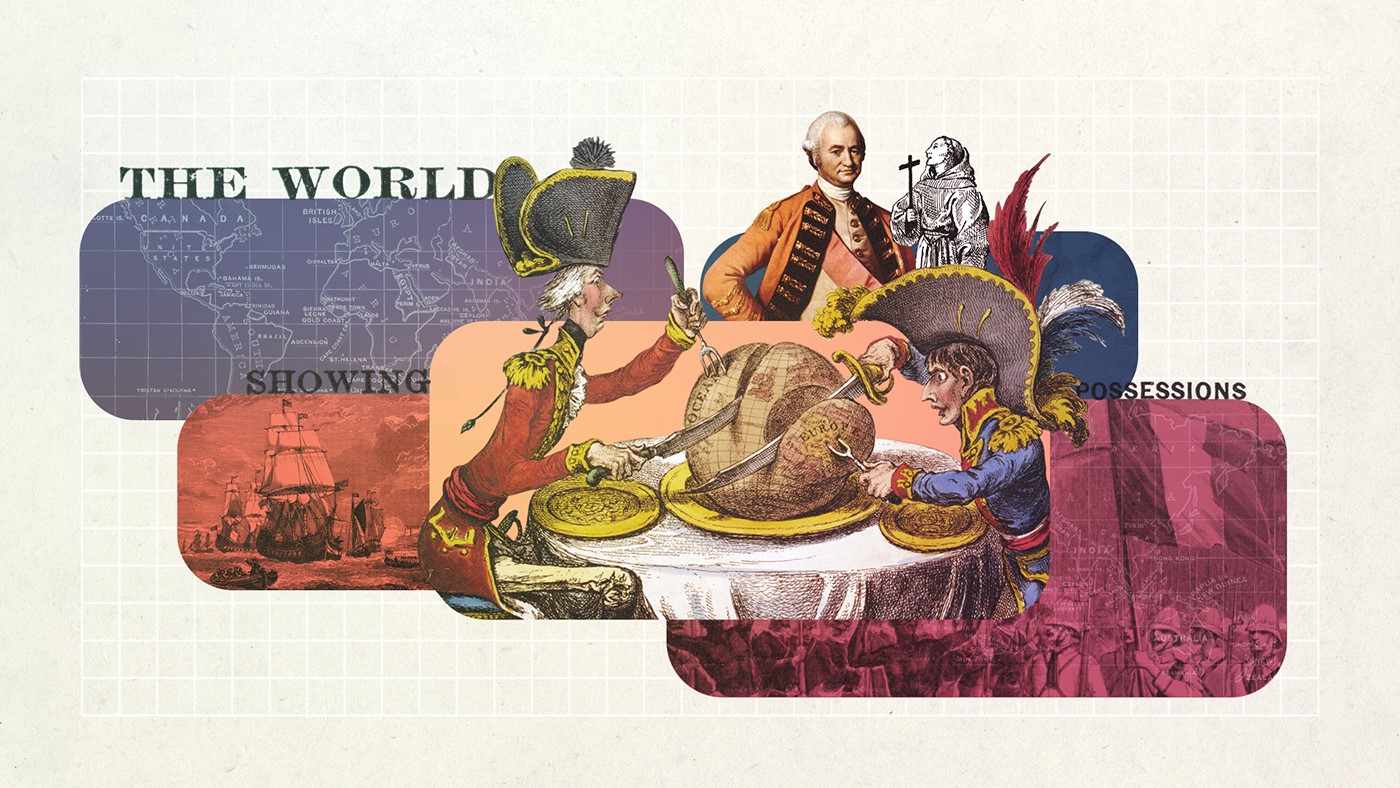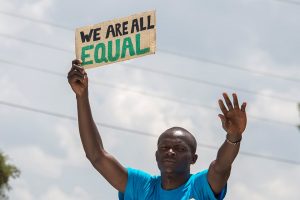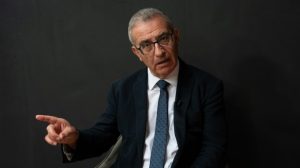On 8 November 1519 the Spanish conquistador Hernan Cortes entered the Aztec capital city of Tenochtitlan for the first time. Emperor Moctezuma II welcomed them and housed his men in the royal palace. They marvelled at the level of engineering of the city built on an island in Lake Texcoco in 1325.
The botanical garden of the palace was full of decorative and medicinal plants. Moctezuma was considered a philosopher king commanding a vast empire in which science had reached new heights. Cortes saw that the opportunity to conquer Tenochtitlan was not to be missed. He attacked the city with his men and took Moctezuma hostage before being driven out of the city.
But Cortes returned two years later with a far greater military and naval force, besieged the city, invaded it, murdered Moctezuma. Cortes himself set fire to the palace. Bernal Diaz del Castillo accompanying Cortes observed sadly: “of all the wonders that I then beheld … today all is overthrown and lost, nothing left standing’.
Colonial conquests were constructed on the ashes of conquered civilizations. 500 years ago, the West set out to colonize the rest of the world to “civilize” it, by among other things, converting it to Christianity. On May 4, 1493, Pope Alexander VI issued his ‘Doctrine of Discovery’ decreeing that “any land not inhabited by Christians was available to be discovered, claimed and exploited by Christian rulers.”
He declared that “the Catholic faith and the Christian religion be exalted be everywhere increased and spread, that the health of souls be cared for and that barbarous nations be overthrown and brought to the faith itself.”
This Papal Bull has provided the spiritual, political and legal justification for colonization and the seizure of land not inhabited by Christians in Africa, Asia, Australia, New Zealand and the Americas. It fuelled white supremacy and gave European settlers the belief that they were divine instruments and possessed cultural superiority over the rest of the world. It created the ideology that supported the dehumanization of those living in the newly discovered lands and made acceptable the dispossession, murder and forced assimilation of the indigenous people.
It took the Catholic Church 530 years – and a Pope from the former Spanish colony of Argentina – to finally rescind and revoke the ‘Doctrine of Discovery’ formally. On March 30, 2023, Pope Francis repudiated the Doctrine. The Vatican also apologized for historical atrocities carried out by Christians and affirmed the rights and cultural values of Indigenous peoples.
Pope Francis was very aware that the West still had to learn how to talk about, think about and behave differently towards the rest of the world without any feelings of superiority.
The relationship between the former Western empires and their former colonies has still not moved away completely from being the continuation of colonialism by other means. Former Western empires still have to atone fully for the brutal exploitation, civil wars, slavery, genocides and the crushing of independent movements they carried out in their former colonies. The centuries-long abuses of Africa, Asia and Latin America by former Western empires still overshadow and define the present relationship between them.
Co-existence or no existence
Apart from speaking out against colonial resource exploitation that is going on in new forms, in ‘Fratelli Tutti’ Pope Francis denounced contemporary cultural colonization. In January 2015 he had explained: “When conditions are imposed by colonizing empires, they seek to make these peoples lose their own identity and create uniformity. .. It is important to globalize, but (where) … each people, every part, preserves its identity without being ideologically colonized.”
In ‘Fratelli Tutti’ he elaborates what this entails: “What is needed is a model of social, political and economic participation “that can include popular movements and invigorate local, national and international governing structures with that torrent of moral energy that springs from including the excluded in the building of a common destiny.”
In his book ‘Spain, A Global History’ Senior Spanish diplomat Luis Francisco Martinez Montes says that “it is one of our main moral duties to prevent the West from again following the path to domination, which as we know, leads to all too familiar destinations.” One way of doing this, is to ensure that today’s civilised human beings include in their education “other (non-Western) cultural references, necessarily including the other great civilizations.”
Montes argues that if we are to learn to live together as equals, we must be inclusive and expansive to be able to embrace the cultural diversity of the whole world. Human history is made up of “living with each other, fighting each other, loving each other, learning from each other and rejecting each other.” Bringing together different civilizations, not to destroy each other, but to live together is not easy at all. But the alternative to co-existence is not existing at all.
In ‘Why the Idea of Western Civilization is More Myth Than History’ (Literary Hub) May 23, 2023, Naoíse Mac Sweeney says: “Western Civilization is therefore not just a myth in the sense that it is a fiction that we tell ourselves, despite knowing that it is factually false. It is a myth that was invented to justify slavery, imperialism, and oppression. As such, it served the ideological needs of the time of its invention, reflecting the core values of the society that produced it… We should turn to the real history of the West—a narrative better supported by the actual historical facts. This is both more complex than traditional histories allow, shaped more by intercultural exchange than by innate characteristics; and more inclusive…”
Anxiety and uncertainty has gripped the West leading to “Westlessness” – a loss of purpose and direction about its identity, values, and future. It is struggling to admit the decline of its traditional dominance and the rise of new global powers. Overtaken by its former colonies demographically, economically, technologically and militarily, the West had better learn to live with and among those it cannot dominate and those who do not want to be dominated any longer.
Times of Malta 18 July 2025




